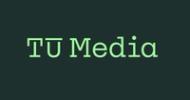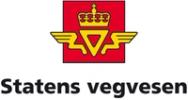I brevet prøver Chardon å angripe Linux så godt han kan. Dessverre for ham har han trolig liten kunnskap om Linux. Skal man tro enkelte uttalelser digi.no har mottatt om dette i dag, runger latteren i Linux-miljøet.
- Dette forsøket på å spre FUD (Fear, Uncertainty and Doubt) er virkelig noe av den mest underholdende svada jeg har lest på lenge, skriver Bjørn Borud, styreformann og utvikler i Guardian Networks, i en e-post til digi.no.
- Det er så til de grader åpenbar desinformasjon at jeg nesten synes litt synd på den stakkars sjefen for MS i Frankrike som kommer til å bli nedrent av alt fra sinte Linux-fundamentalister til skadefro spaltister. MS trenger ikke hjelp til å skade troverdigheten sin - de klarer det fint selv, er den saftige kommentaren Borud kommer med.
Nedenfor kan du lese et utdrag av en oversettelse av brevet gjort for nettstedet Slashdot. En lenke til det originale brevet på fransk finnes i spalten til høyre.
"It would seem that Linux does not satisfy the requirements of most companies, let alone the general public.
Linux presents limits that will slow down its widespread distribution, particularly in companies and the general public.
In terms of the system's stability, Linux has problems of general coordination, and one feels strongly the lack of a project leader. Linus Torvald left university last year to join a Californian company. The development of Linux has since considerably slowed down. Similarly, the maintenance of Linux' functionality depends on the mobilization of its teams. Thus, certain of its functions have not been updated in the last two .years.
The installation of Linux is delicate. For optimal system performance, each version must be tuned on each computer at each installation, by a competent computer-technician. Setting it up and its administration are therefore not within the reach of a computer-technician used to more friendly operating systems, let alone basic users. Using Linux is complex, its programs generally take text commands.
Finally most Linux application software has limited functionality. Word processors rarely have functionality common on today's PC or Macintosh: dynamic spelling correction, graphic input of tables, integration of imported graphics. Most Linux word processors bear more resemblance to Microsoft Write written in 1985.
Linux' advantages of zero-cost and open source are not relevant criteria for most users.
The zero-cost of Linux is a non decisive advantage: the cost of an OS is minor in comparison to the other costs of a company. The price of the OS is only one of the elements of computers in companies. Putting a traditional OS into place costs many times the price of the OS itself, and the same goes for the creation of an application program and its maintenance. So, by installing Linux, one saves the cost of the OS, but one increases the cost of installation, and one takes risks for the maintenance of the applications and the system itself.


If certain people consider the permanent availability of source code to be an absolute guaranty of independence from software editors, we fail to see the benefit for a company or a person to have access to the source of his OS.
However, the distribution of the OS source code is very useful for students and researchers, to understand the inner-workings of the OS and eventually to change it. Linux will therefore probably stay for a long time a good subject of study for computer-scientist, rather than an OS destined for widespread distribution."




